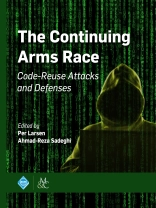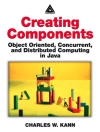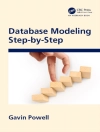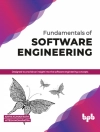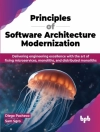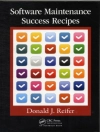As human activities moved to the digital domain, so did all the well-known malicious behaviors including fraud, theft, and other trickery. There is no silver bullet, and each security threat calls for a specific answer. One specific threat is that applications accept malformed inputs, and in many cases it is possible to craft inputs that let an intruder take full control over the target computer system.
The nature of systems programming languages lies at the heart of the problem. Rather than rewriting decades of well-tested functionality, this book examines ways to live with the (programming) sins of the past while shoring up security in the most efficient manner possible. We explore a range of different options, each making significant progress towards securing legacy programs from malicious inputs.
The solutions explored include enforcement-type defenses, which excludes certain program executions because they never arise during normal operation. Another strand explores the idea of presenting adversaries with a moving target that unpredictably changes its attack surface thanks to randomization. We also cover tandem execution ideas where the compromise of one executing clone causes it to diverge from another thus revealing adversarial activities. The main purpose of this book is to provide readers with some of the most influential works on run-time exploits and defenses. We hope that the material in this book will inspire readers and generate new ideas and paradigms.
Mục lục
Table of Contents: Preface / 1. How Memory Safety Violations Enable Exploitation of Programs / 2. Protecting Dynamic Code / 3. Diversity and Information Leaks / 4. Code-Pointer Integrity / 5. Evaluating Control-Flow Restricting Defenses / 6. Attacking Dynamic Code / 7. Hardware Control Flow Integrity / 8. Multi-Variant Execution Environments / References / Contributor Biographies
Giới thiệu về tác giả
Ahmad Sadeghi is a full professor of Computer Science at TU Darmstadt, Germany, and the Director of the Intel Collaborative Research Institute for Secure Computing (ICRI-SC) at TU Darmstadt. He holds a Ph.D. in computer science from the University of Saarland in Saarbrücken, Germany. Prior to academia, he worked in research and development for telecommunications enterprises, amongst others Ericsson Telecommunications. He is editor-in-chief of IEEE Security and Privacy Magazine, and on the editorial board of ACMBooks. He served five years on the editorial board of the ACM Transactions on Information and System Security (TISSEC), and was guest editor of the IEEE Transactions on Computer-Aided Design (Special Issue on Hardware Security and Trust).
